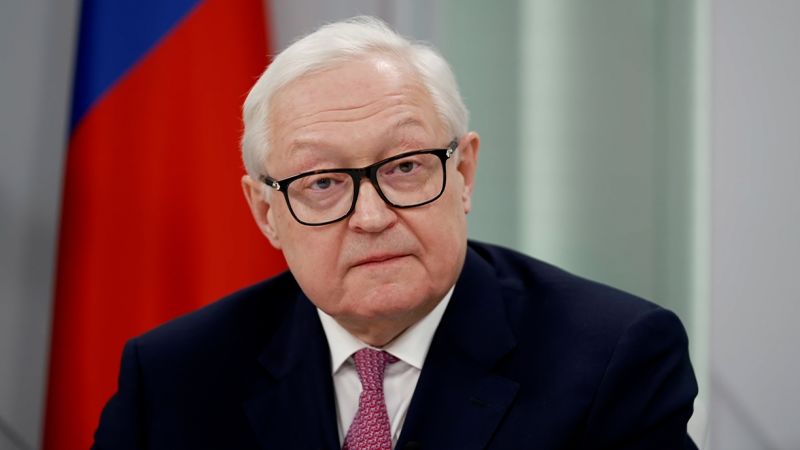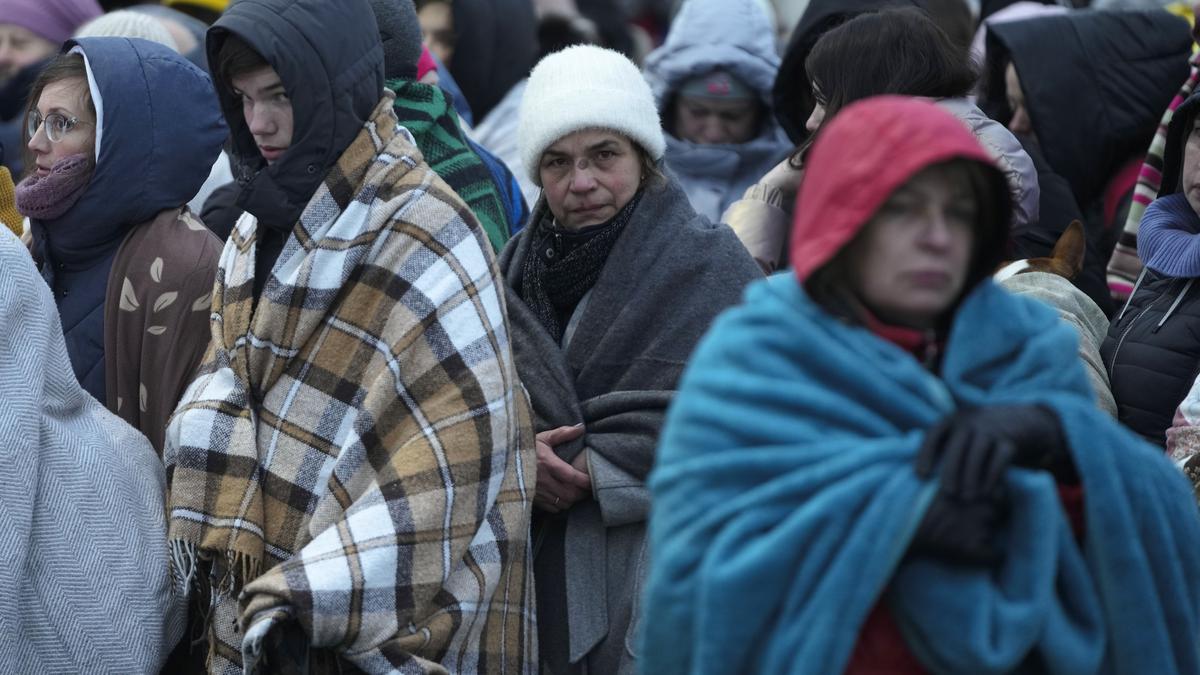
U.N.: Russian invasion has uprooted 14 million Ukrainians
The HinduRussia’s invasion of Ukraine has driven some 14 million Ukrainians from their homes in “the fastest, largest displacement witnessed in decades,” sparking an increase in the number of refugees and displaced people worldwide to more than 103 million, the U.N. refugee chief said Wednesday. Filippo Grandi, who heads the U.N. High Commissioner for Refugees, told the U.N. Security Council that Ukrainians are about to face “one of the world’s harshest winters in extremely difficult circumstances,” including the continuing destruction of civilian infrastructure that is “quickly making the humanitarian response look like a drop in the ocean of needs.” Humanitarian organizations have “dramatically scaled up their response," he said, “but much more must be done, starting with an end to this senseless war.” But given “the likely protracted nature of the military situation," Grandi said his agency is preparing for further population movements both inside and outside Ukraine. Mr. Grandi pointed to the more than 8,50,000 Ethiopians displaced in the first half of the year, and said the recent surge in conflict in that nation's northern Tigray region has had “an even more devastating impact on civilians.” The U.N. refugee agency is also in Myanmar, where the country’s military rulers are facing armed resistance and an estimated 500,000 people were displaced in the first half of the year, Grandi said. He lamented that “the horrors” he witnessed when he worked in Congo 25 years ago are repeating themselves, “with displacement being, once again, both a consequence of conflict and a complicating factor in the web of local and international tensions.” Addressing a council responsible for ensuring international peace and security, Grandi said: “Surely we can do better in trying to bring peace to this beleaguered region.” The refugee chief said these crises and others, including the longstanding issue of refugees from Afghanistan and Syria and the complex flow of migrants from the Americas, “are not only fading from media attention but are being failed by global inaction.” Reasons for displacement are also becoming more complex, with new factors forcing people to flee including the climate emergency, Mr. Grandi said. Last week, Mr. Grandi said he met emaciated Somalis who had walked for days to get help and whose children had died on the way, and Somali refugees “pushed into already drought-affected areas of Kenya.” He praised the Kenyan government, despite its own challenges, for “ making a landmark shift from encampment of refugees to inclusion — a transition that I hope all will robustly support.” Mr. Grandi expressed hope that this month's U.N. summit on climate change in Egypt and the summit in the United Arab Emirates next year will take into account both climate’s link to conflict and the displacement it causes.
History of this topic
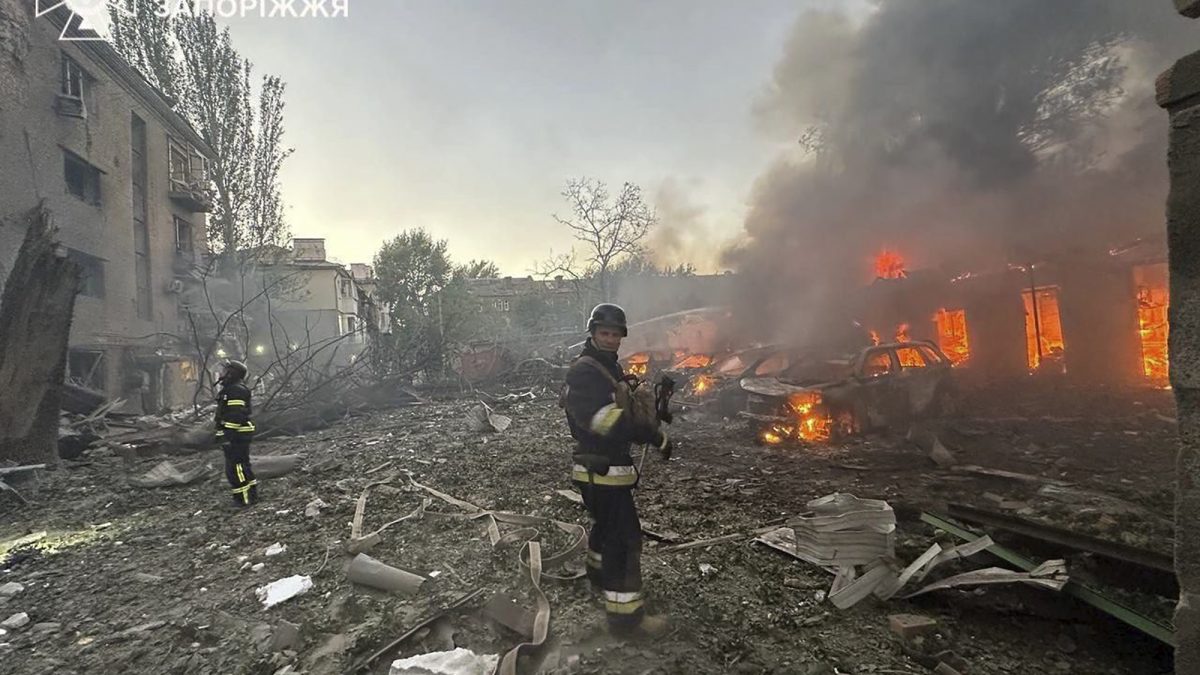)
Ukraine dreams of reclaiming 2014 borders in war but energy crisis, displacement could crush its fight
Firstpost
One million are now dead or injured in the Russia-Ukraine war
Live Mint
Ukraine military takes control of 28 Russian towns, 180,000 people evacuated
Live Mint9 killed in Russian aerial attacks on Ukraine ahead of G7 summit aimed at slowing Moscow’s offensive
Associated Press
UN refugee chief says 114 million have fled homes because nations fail to tackle causes of conflict
The IndependentUN refugee chief says 114 million have fled homes because nations fail to tackle causes of conflict
Associated Press
Ukraine humanitarian aid falling while needs rise: UN
Hindustan TimesTwo years after Putin's invasion, Ukraine is 'outgunned' and 'outmanned', but struggles on
ABC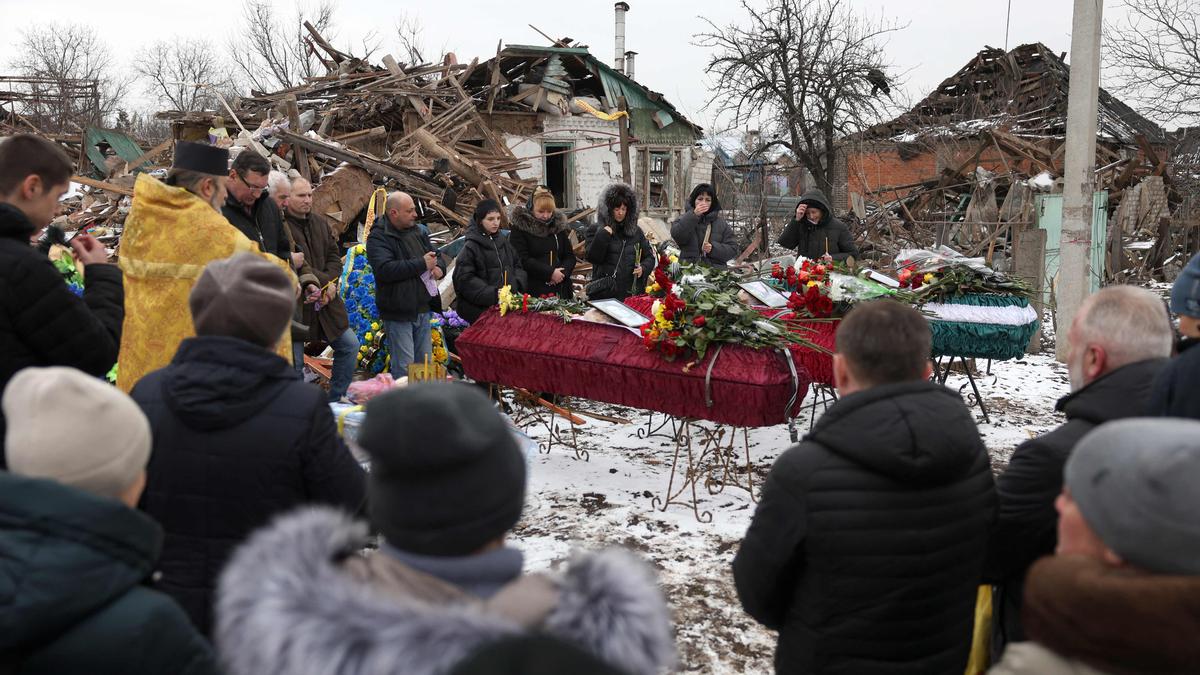
Russia's war in Ukraine has inflicted 'horrific human cost': UN
The HinduThe UN refugee chief says that he’s worried that the war in Ukraine is being forgotten
Associated Press
UN seeks $4.2 billion to support refugees of Russia-Ukraine war
Live MintUnited Nations seeks $4.2 billion to help people in Ukraine and refugees this year
Associated PressMore than 40% of Ukrainians need humanitarian help under horrendous war conditions, UN says
Associated Press
Record 114 million people displaced globally, says UN
Al Jazeera
500 days of war in Ukraine: At what cost?
Al Jazeera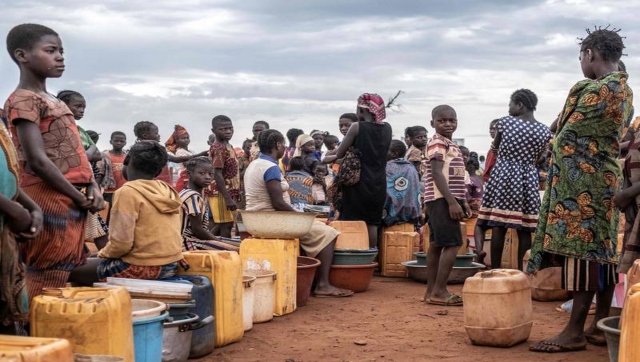)
Over 110 million forcibly displaced as Sudan, Ukraine wars add to world refugee crisis, says UN
Firstpost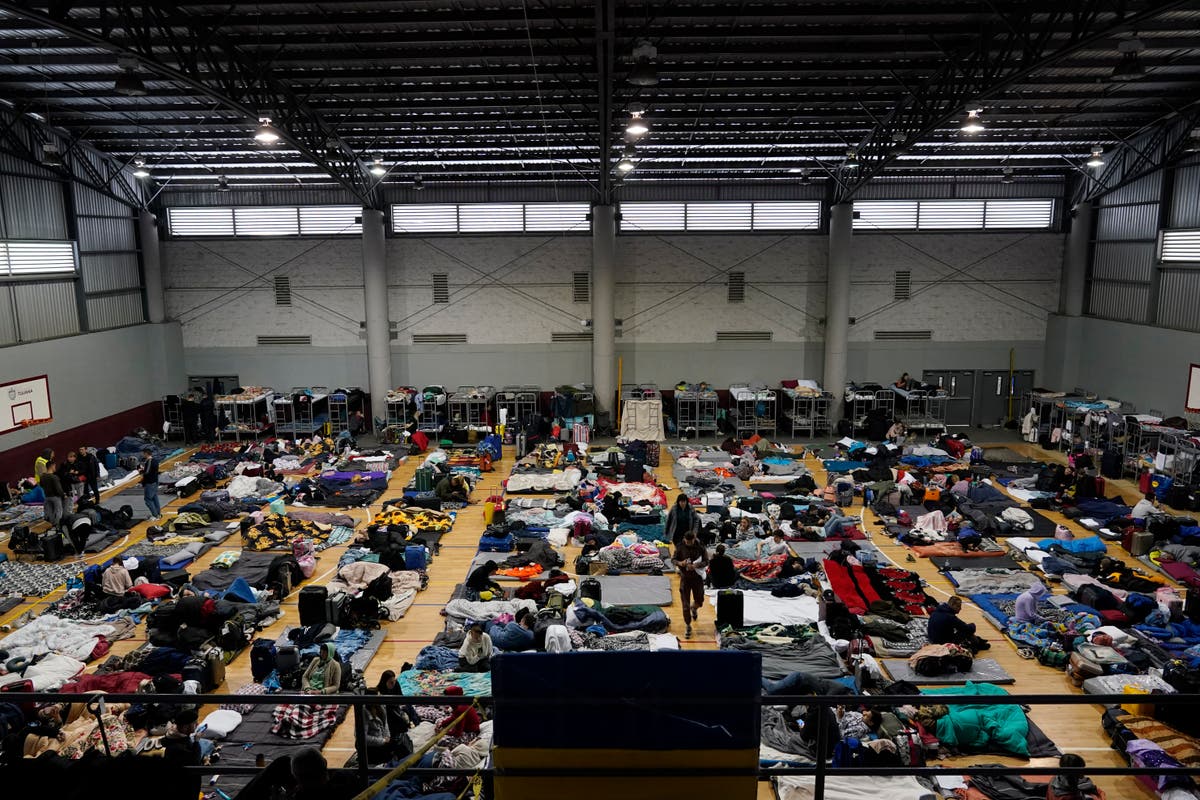
110 million people forcibly displaced as Sudan, Ukraine wars add to world refugee crisis, UN says
The Independent110 million people forcibly displaced as Sudan, Ukraine wars add to world refugee crisis, UN says
Associated Press
Record 110 million people worldwide displaced: UN refugee agency
Al Jazeera
US accuses Russia of trying to ‘freeze’ Ukraine into submission
Al Jazeera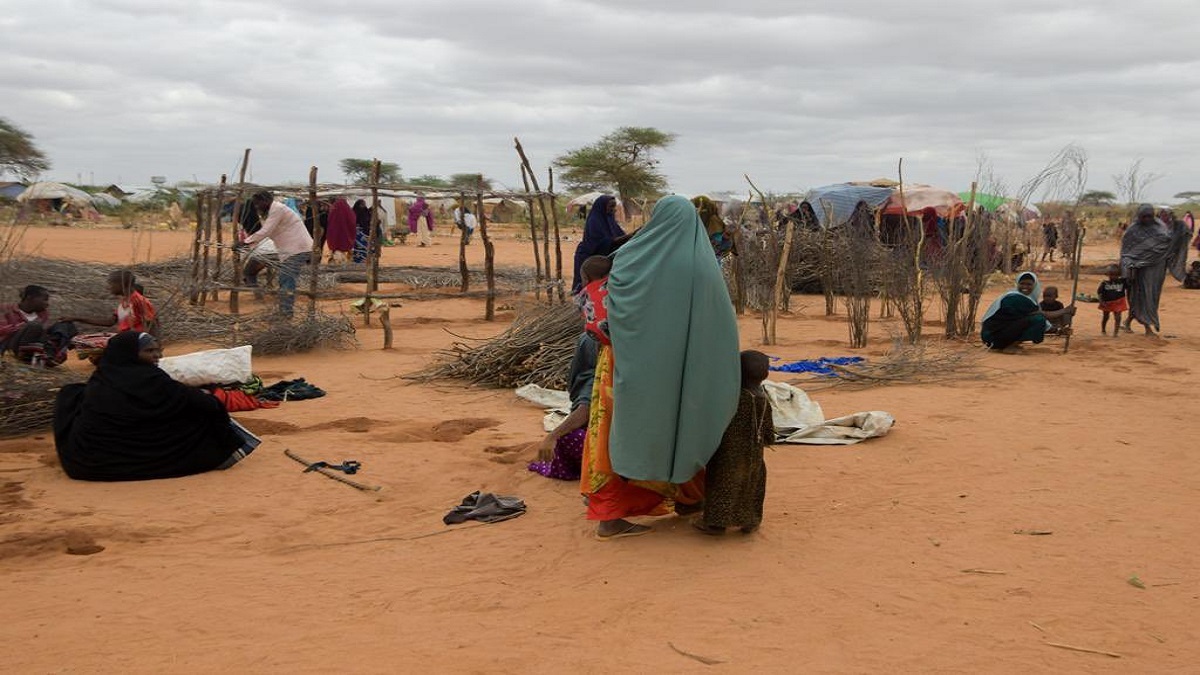
Russia-Ukraine war: Around 4 million Ukrainians displaced from their homes since Russian invasion, says UNHCR
India TV News
6 key numbers that reveal the staggering impact of Russia's war in Ukraine
NPR
‘Time stopped': Ukrainians long to go home as war drags on
Associated Press
Two-thirds of Ukrainian refugees intend to stay in host countries
Al Jazeera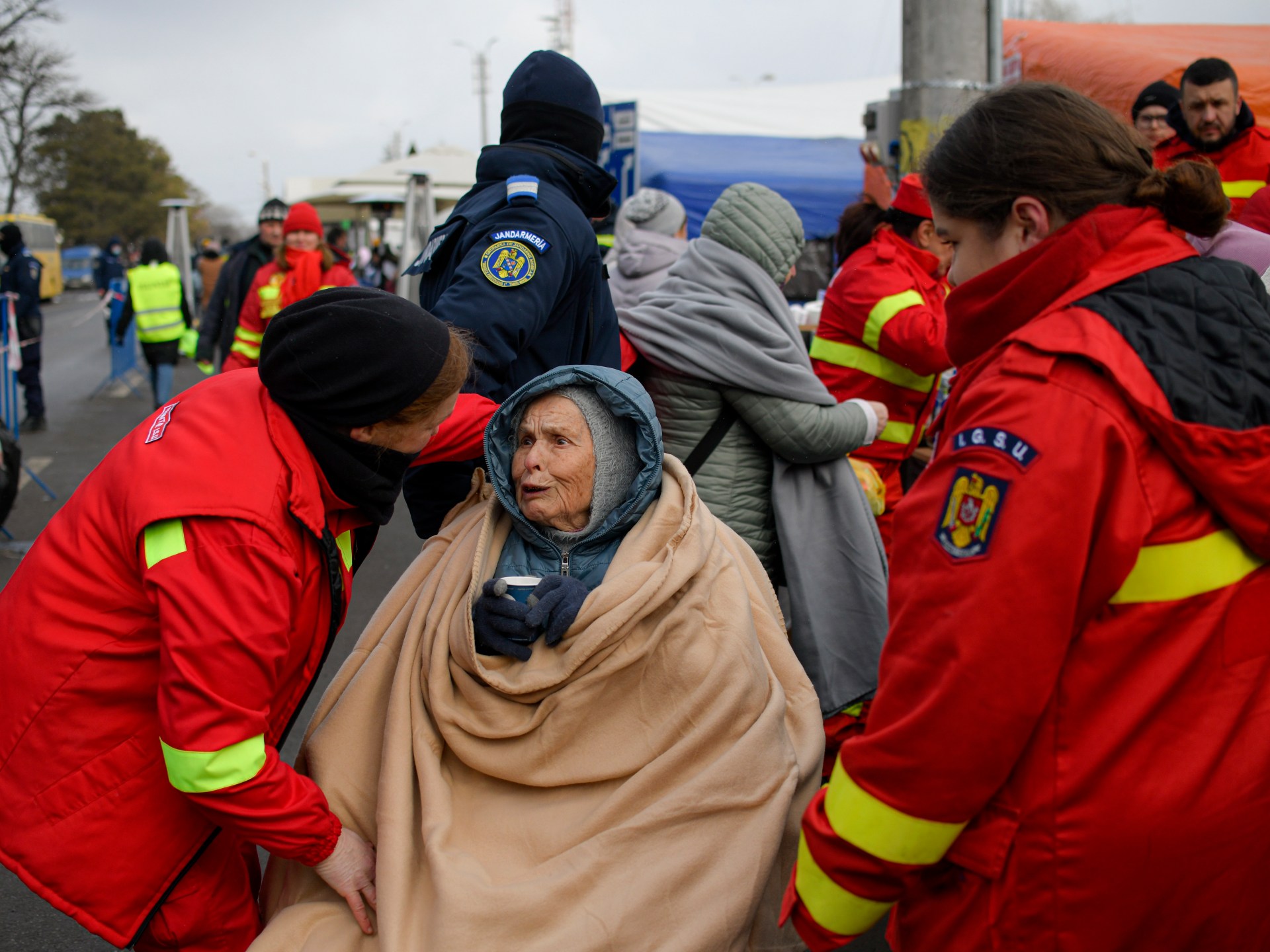
Russia-Ukraine war: ‘Not all refugees are treated the same’
Al JazeeraRussian ex-pat living in WA offers to help and support Ukrainian refugees
ABC
100 days of war: One in 6 Ukrainians has turned refugee
India Today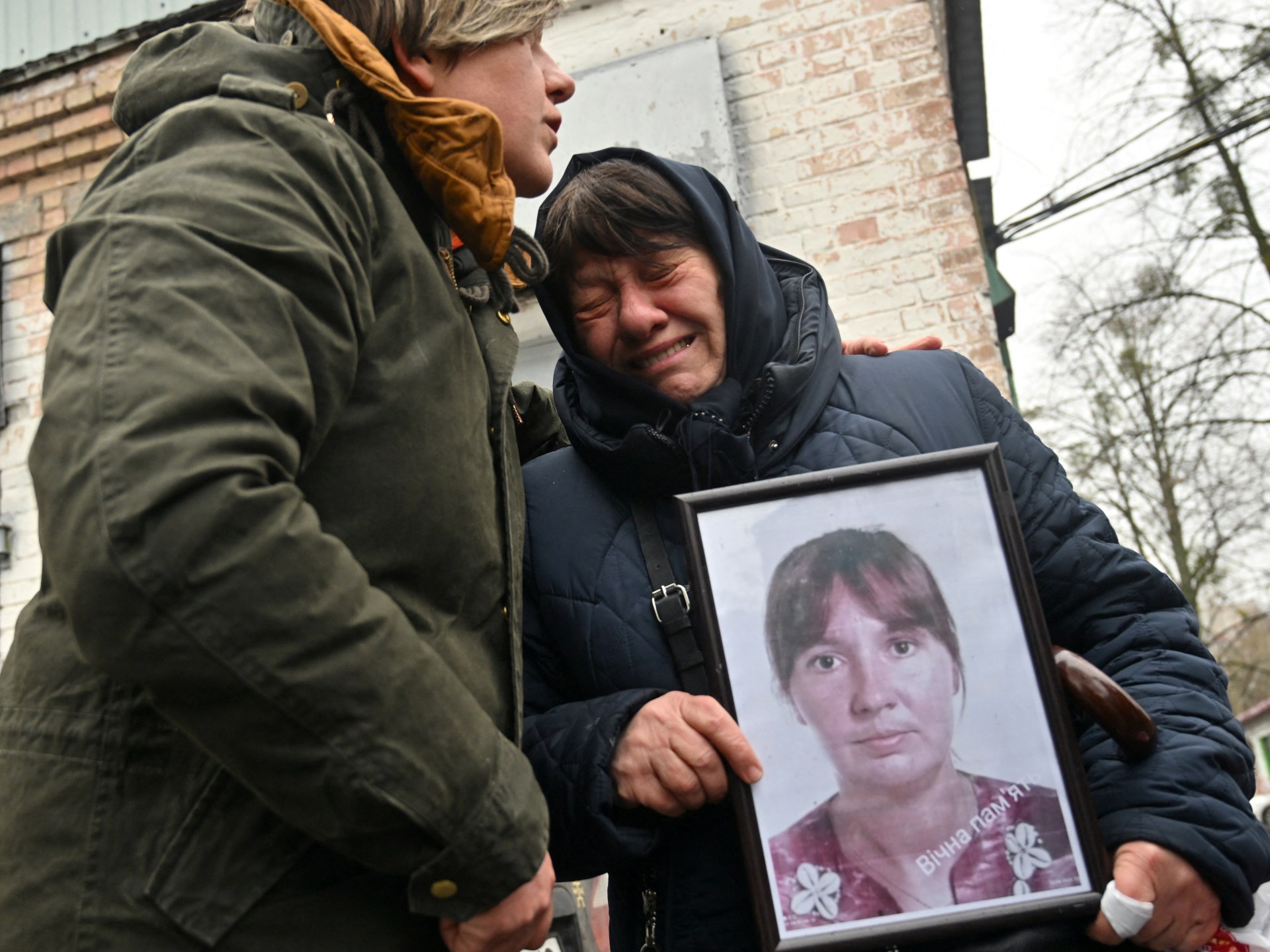
More than 4,000 civilians killed in Ukraine : UN
Al Jazeera
Ukraine war: Poland’s Duda warns of migration ‘problems’
Al Jazeera
UN: More than 100 million people forcibly displaced in the world
Al JazeeraRussia-Ukraine crisis live updates | G7 countries to provide $19.8 billion for Ukraine aid package
The Hindu
Hope, horror, as Ukrainian war refugees exceed 6 million
Associated Press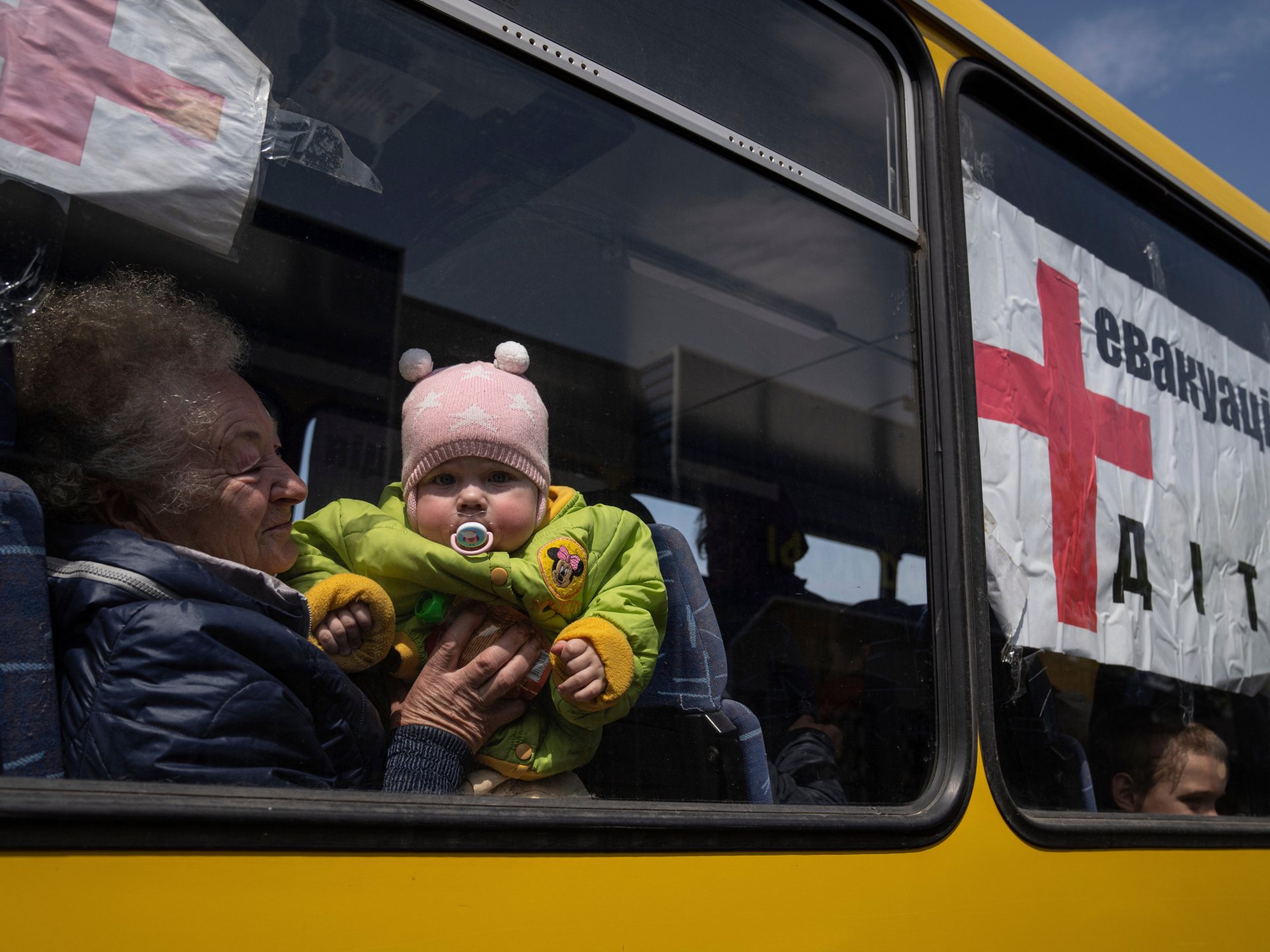
More than six million refugees have fled Ukraine: UN agency
Al Jazeera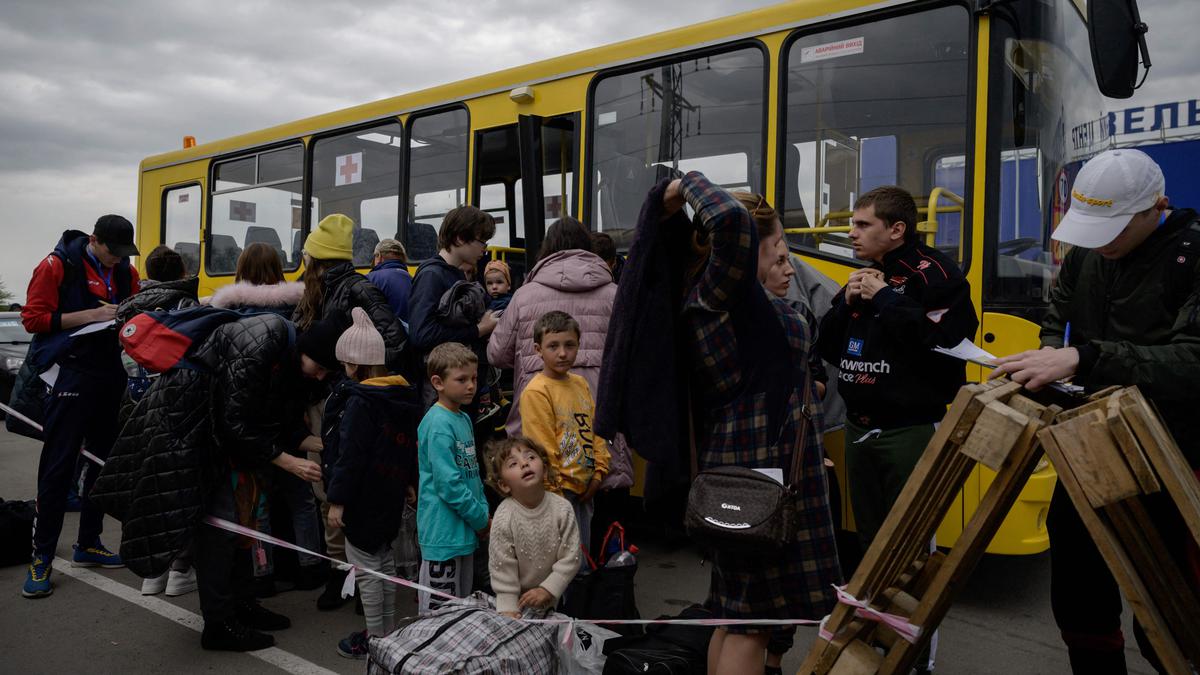
More than eight million people internally displaced in Ukraine: United Nations
The Hindu
Ukraine war: Russian minister claims over 1 million evacuated to Russia
Hindustan Times
Ukraine war refugees top 5 million as assault intensifies
Associated Press
More Than 5 Million Refugees Have Now Fled Ukraine, UN Agency Says
Huff Post
UN: Over 5 million people have fled Ukraine since Russia invasion
Al Jazeera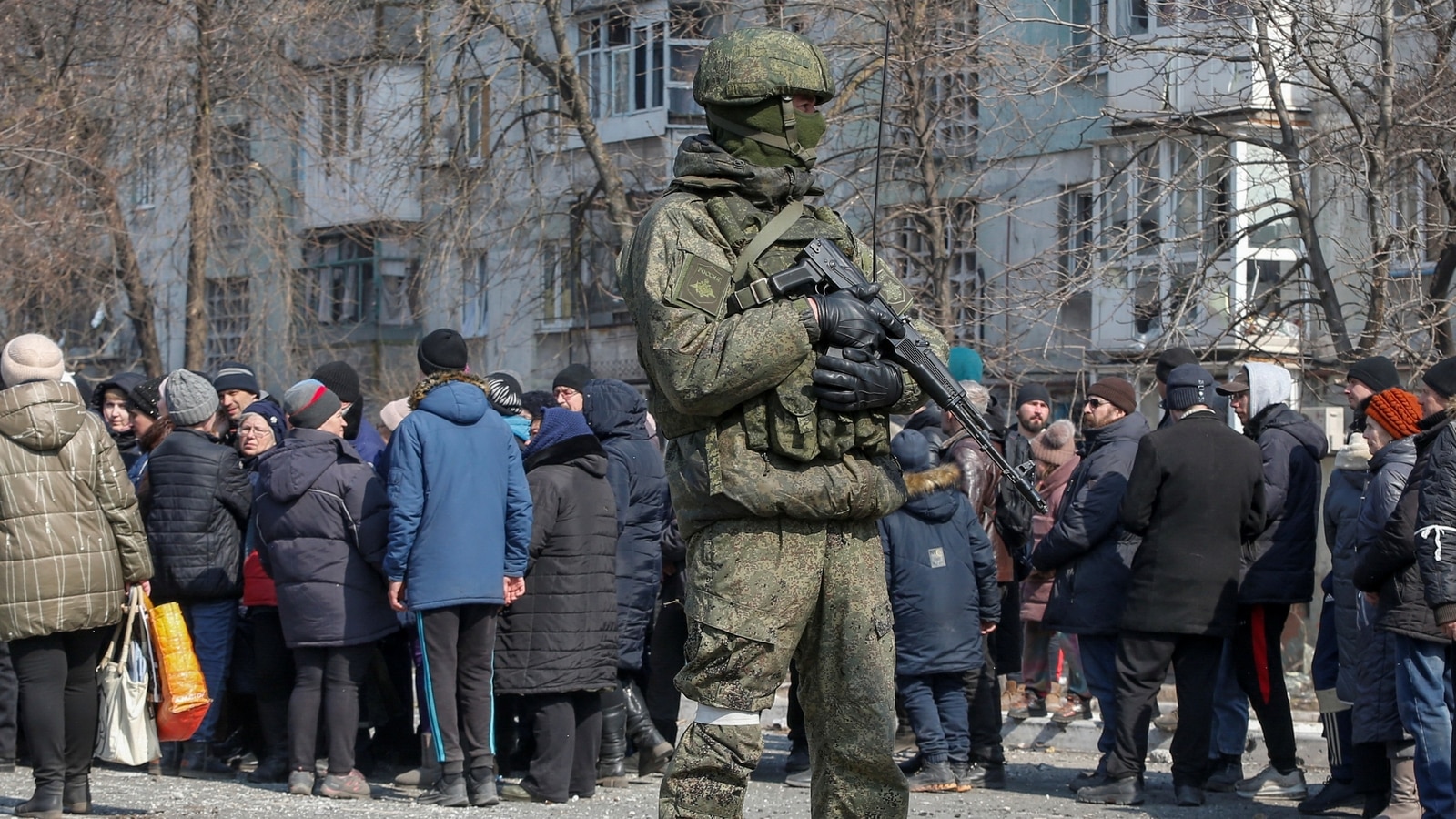
UN warns of trafficking as 40,000 more flee war-torn Ukraine
Hindustan Times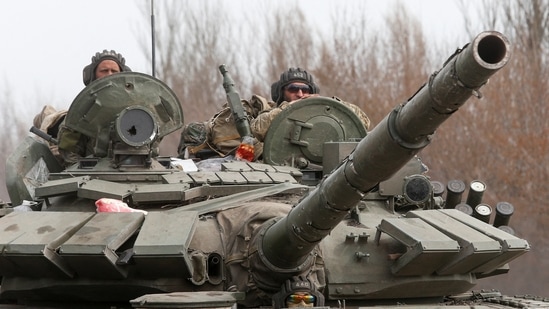
Russia-Ukraine War Highlights: US President Biden approves $800 million in military assistance for Ukraine
Hindustan Times
As Russia menaces Ukraine’s east, Putin says peace talks hit ‘dead end’
LA Times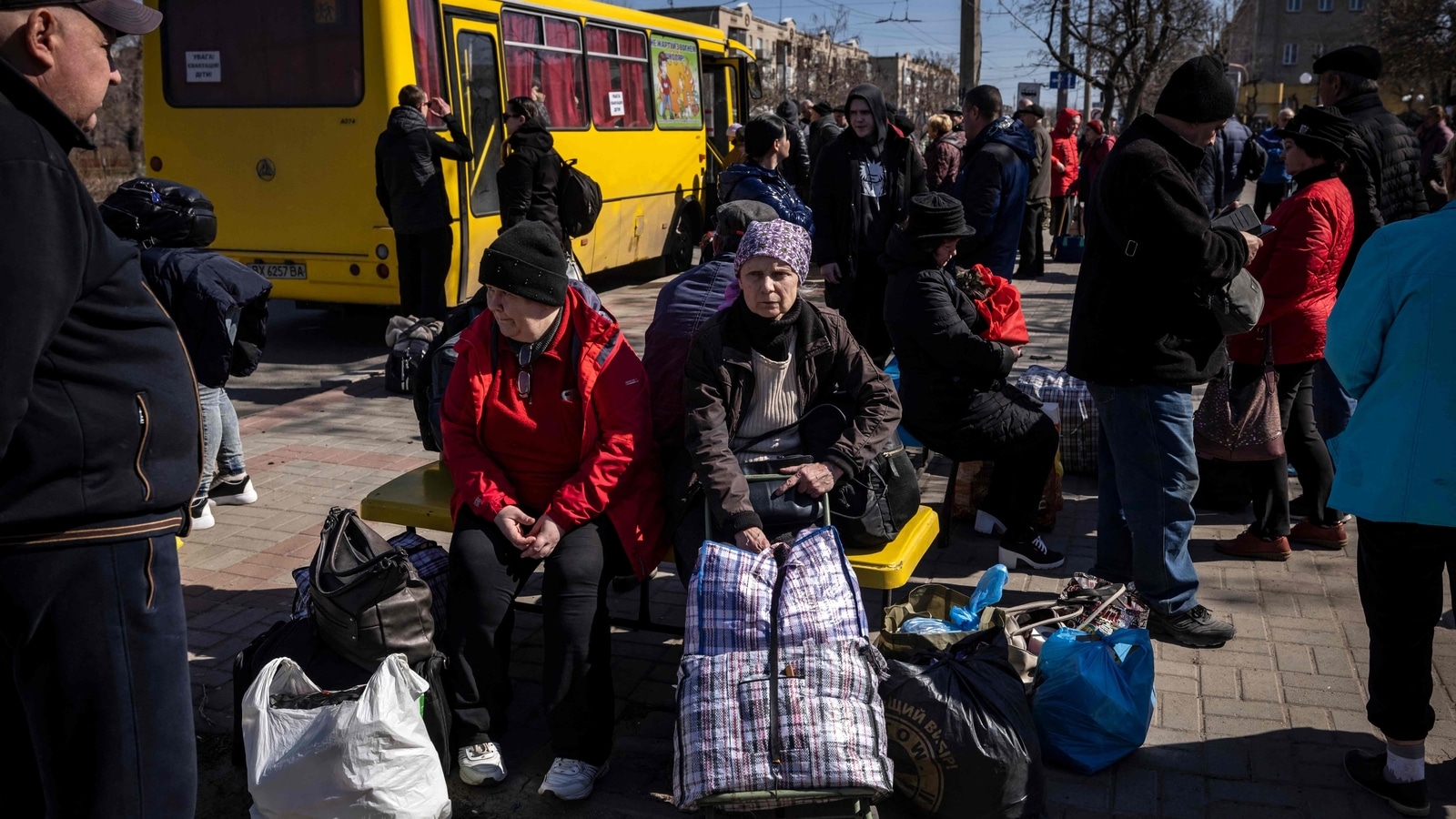
4.4 million civilians have fled Ukraine since invasion | Refugee crisis in pics
Hindustan Times
Russia admits ‘significant losses of troops’ in Ukraine
Al Jazeera)
Why Ukraine is begging its citizens to flee the east
Firstpost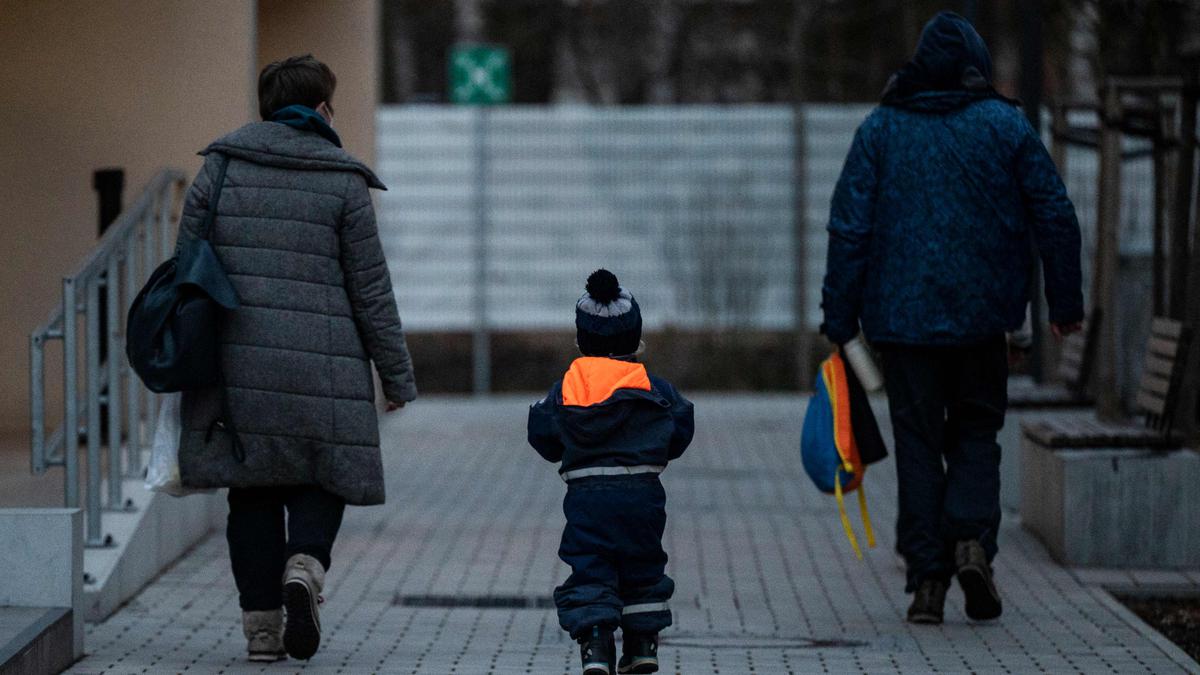
Germany reports rise in attacks against Russian, Ukrainian migrants
The Hindu
In fiery speech, Ukraine’s Zelensky implores U.N. Security Council to hold Russia to account
LA Times
Russia’s invasion of Ukraine: List of key events, day 41
Al Jazeera
Ukrainians in US mobilize to help 100,000 expected refugees
The Independent
UN chief: 2 billion people live in conflict areas today
Associated PressDiscover Related





)
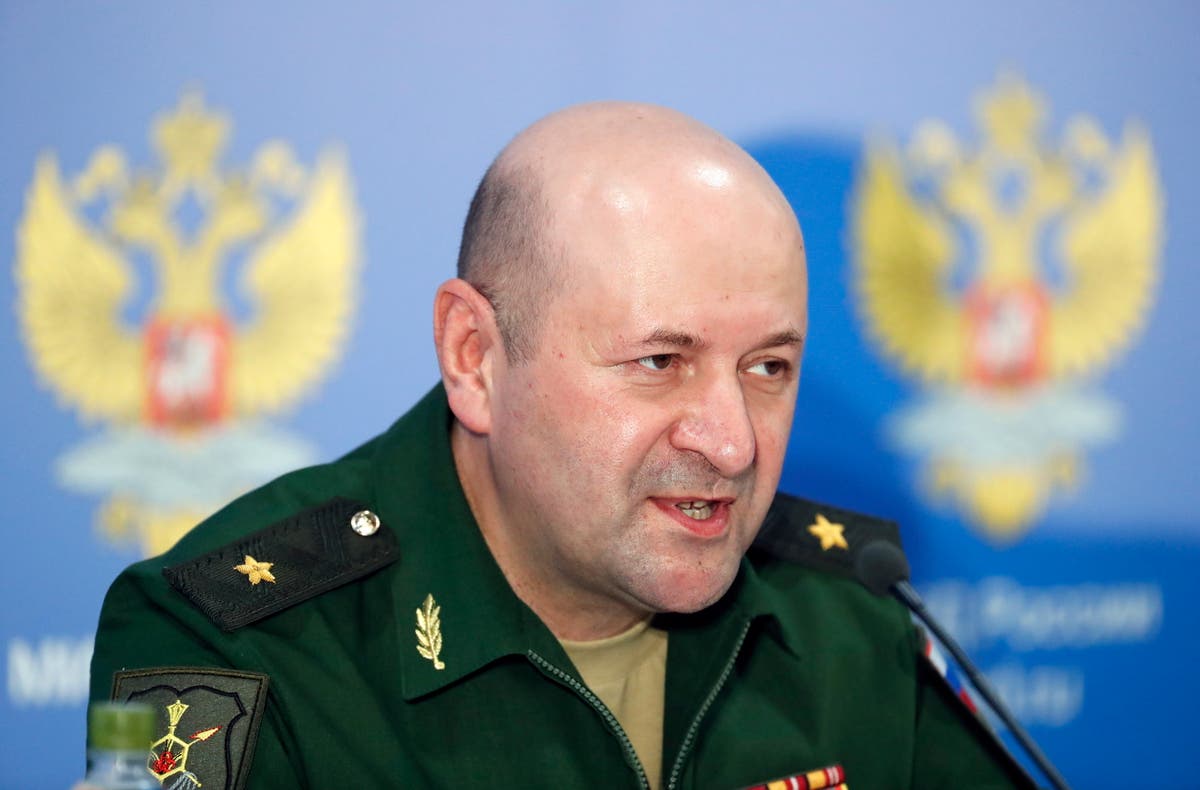



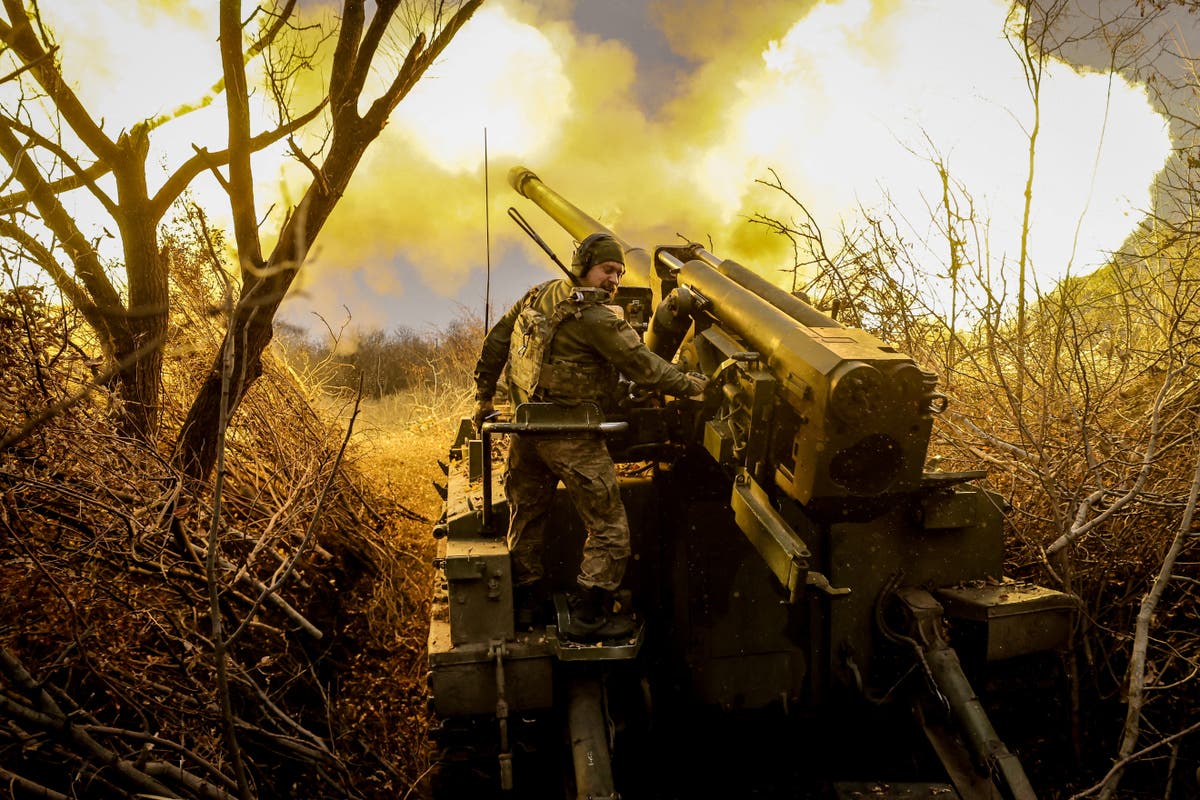

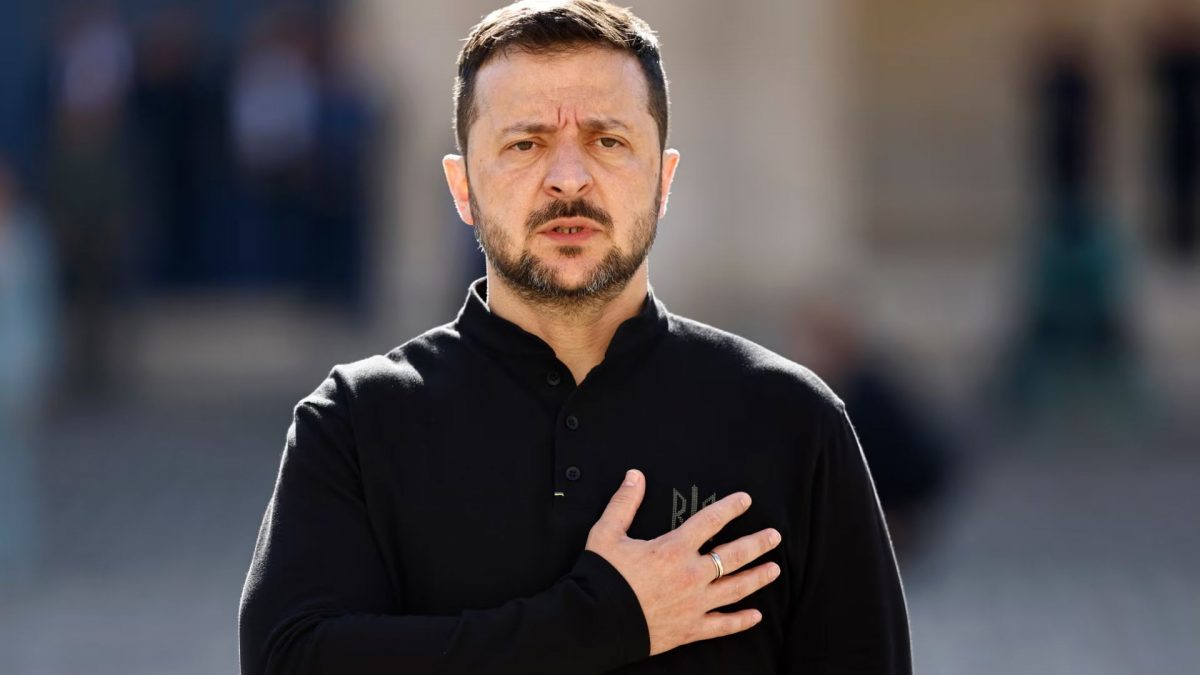)
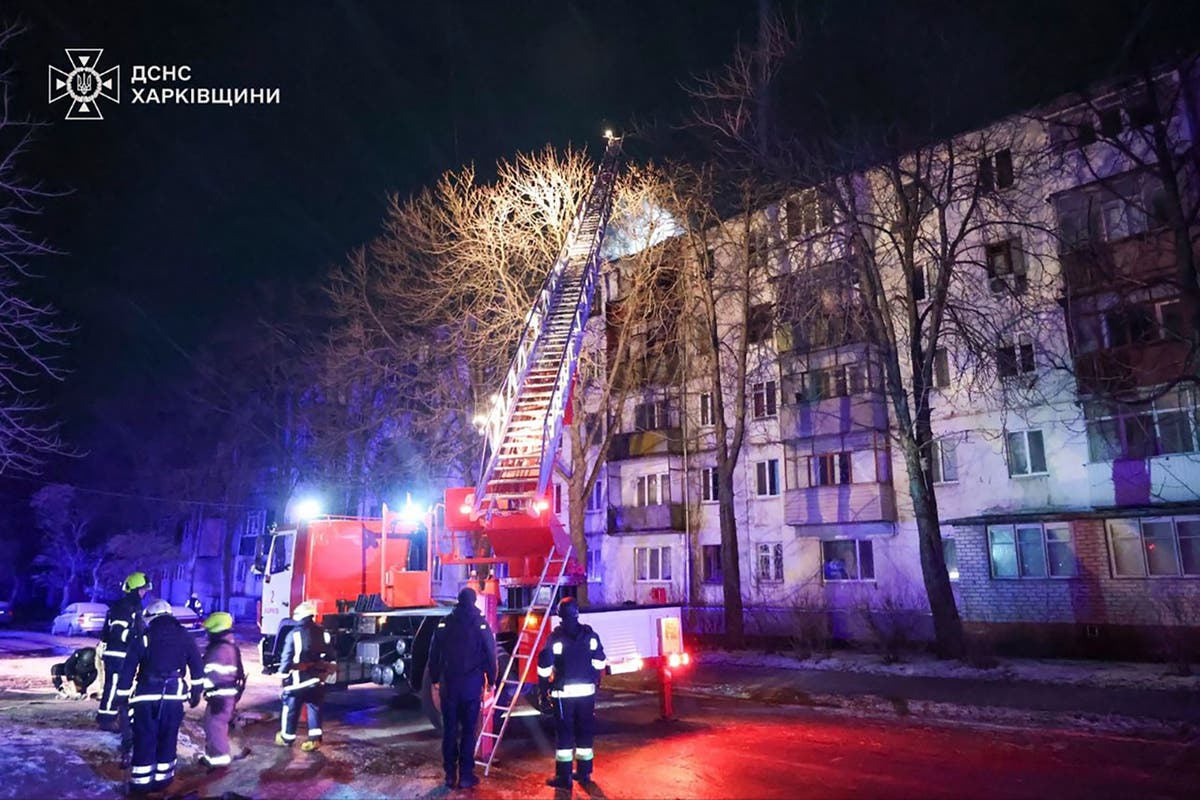
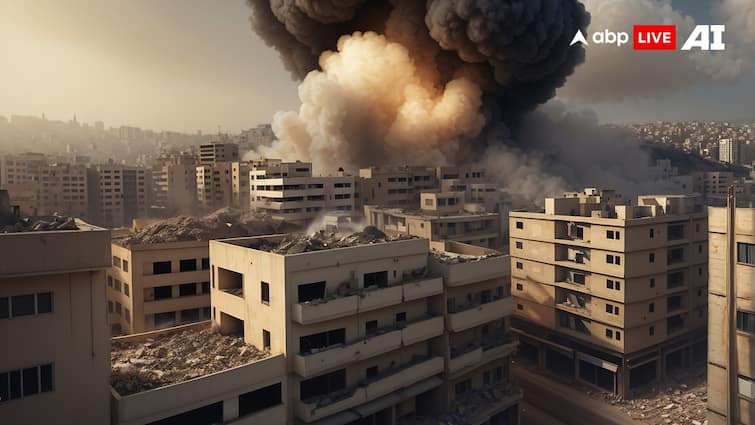


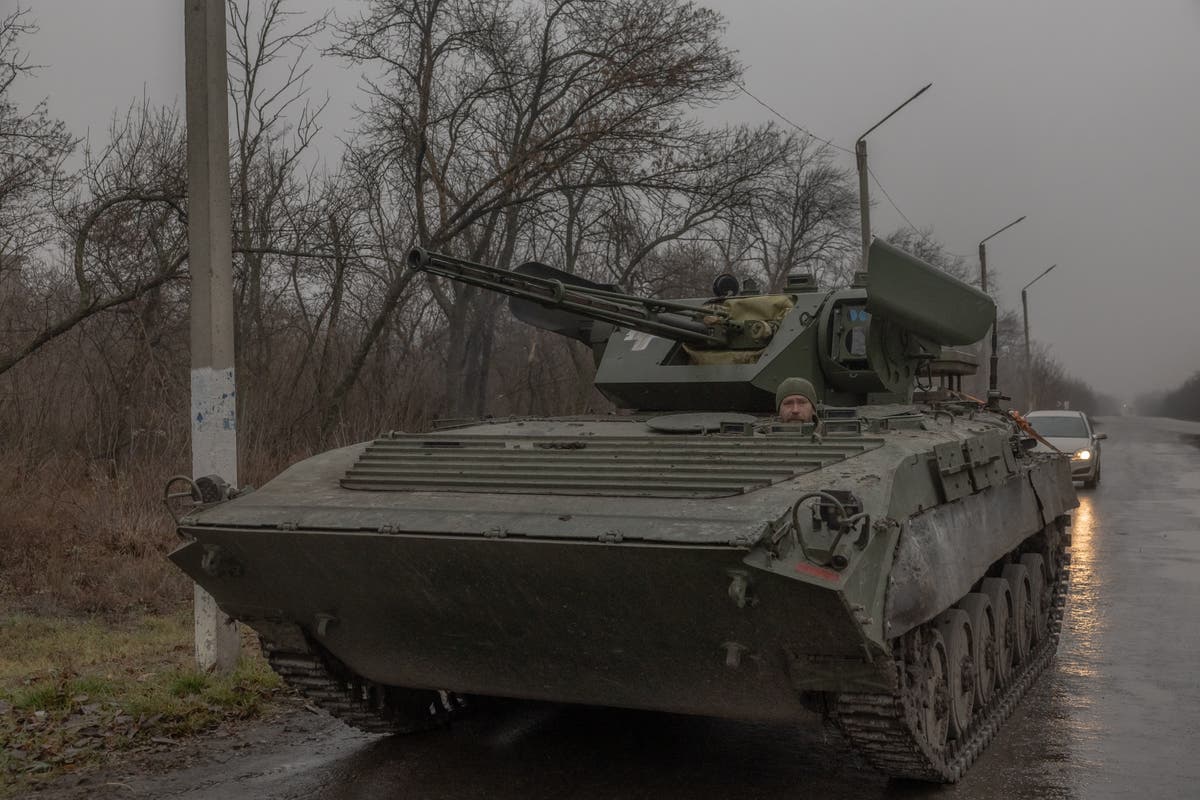
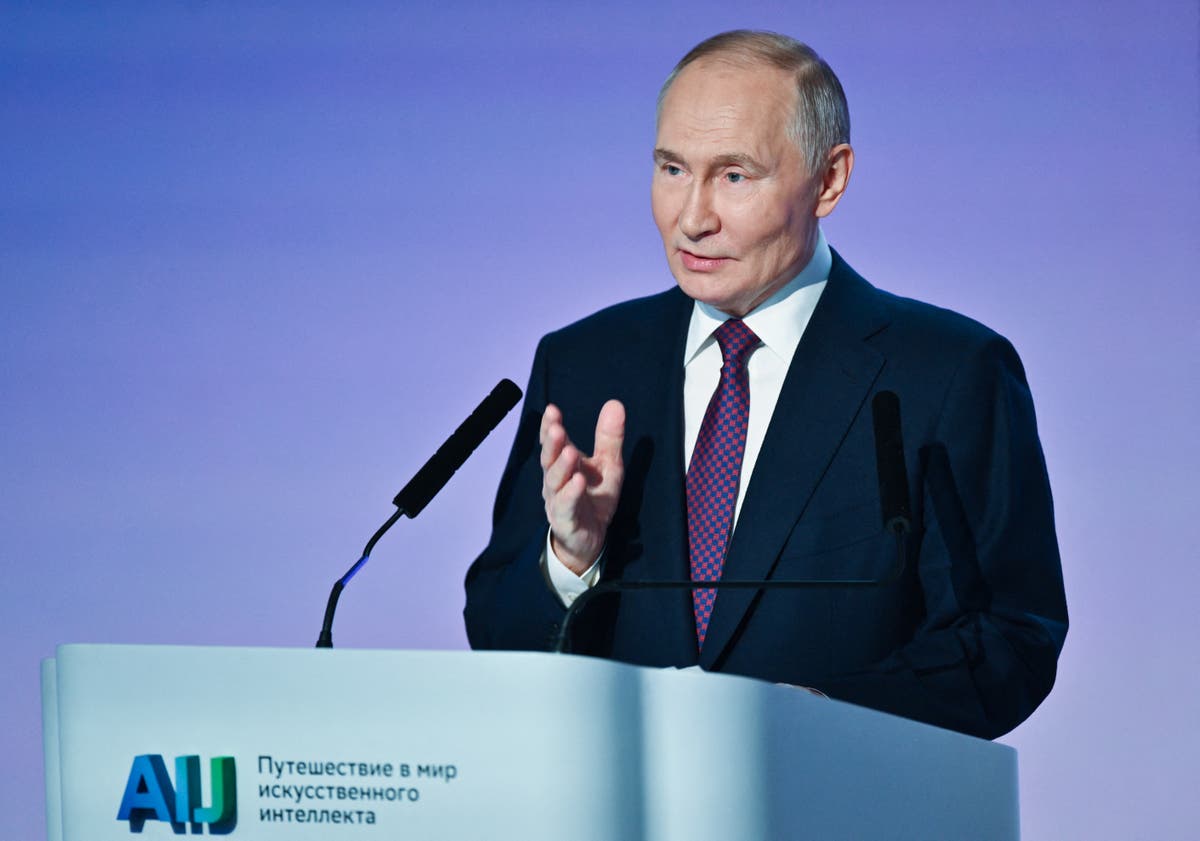
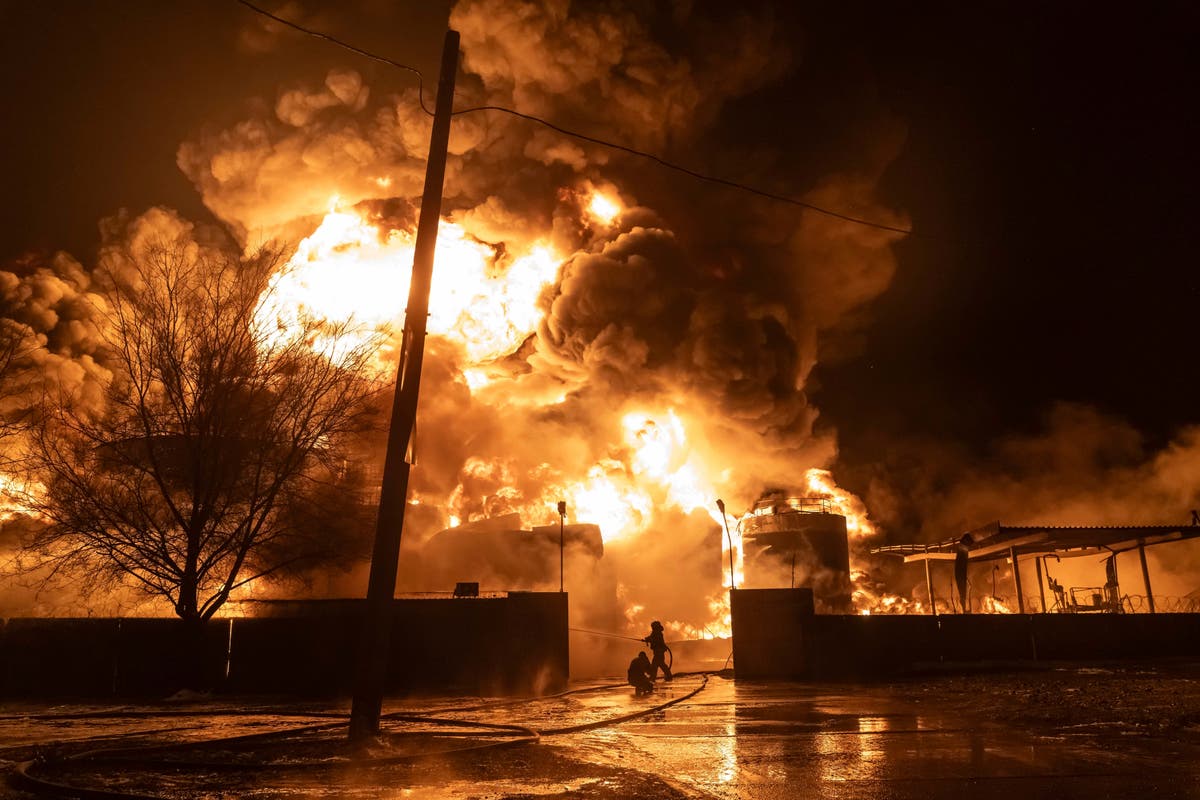
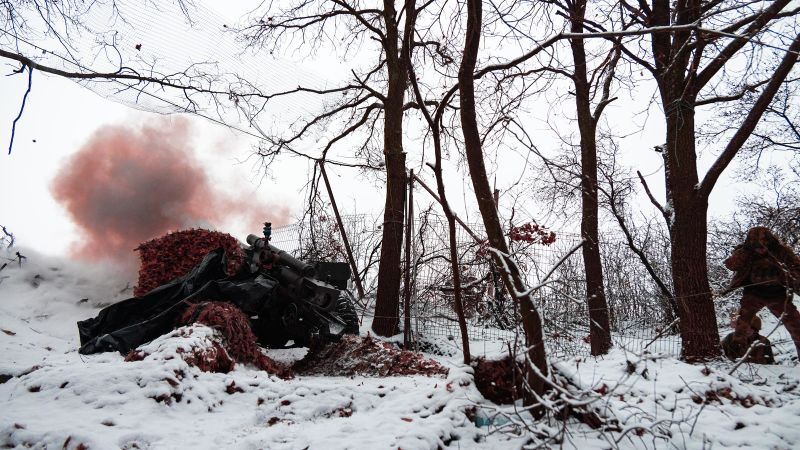


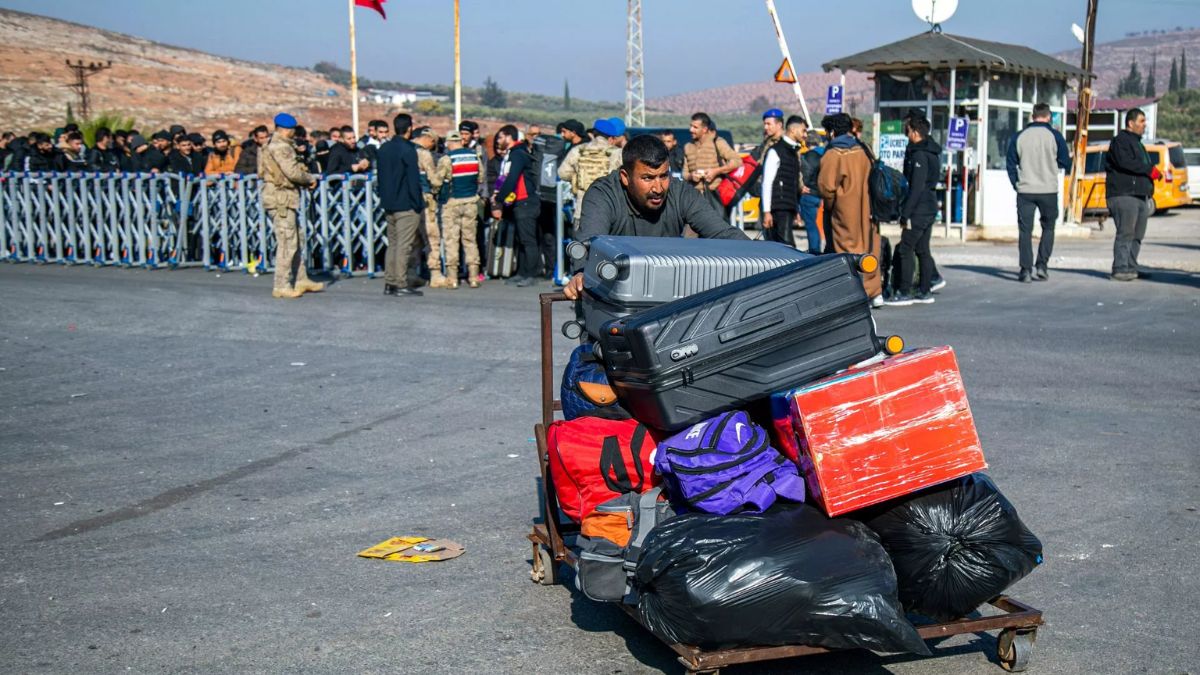)
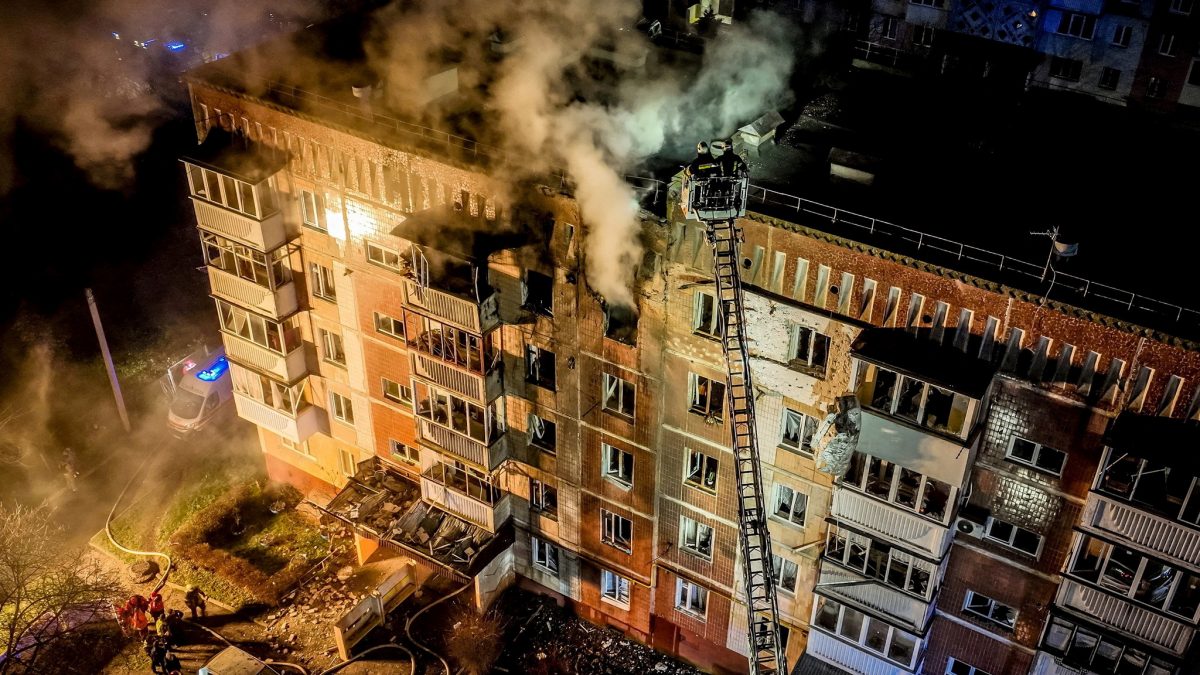)
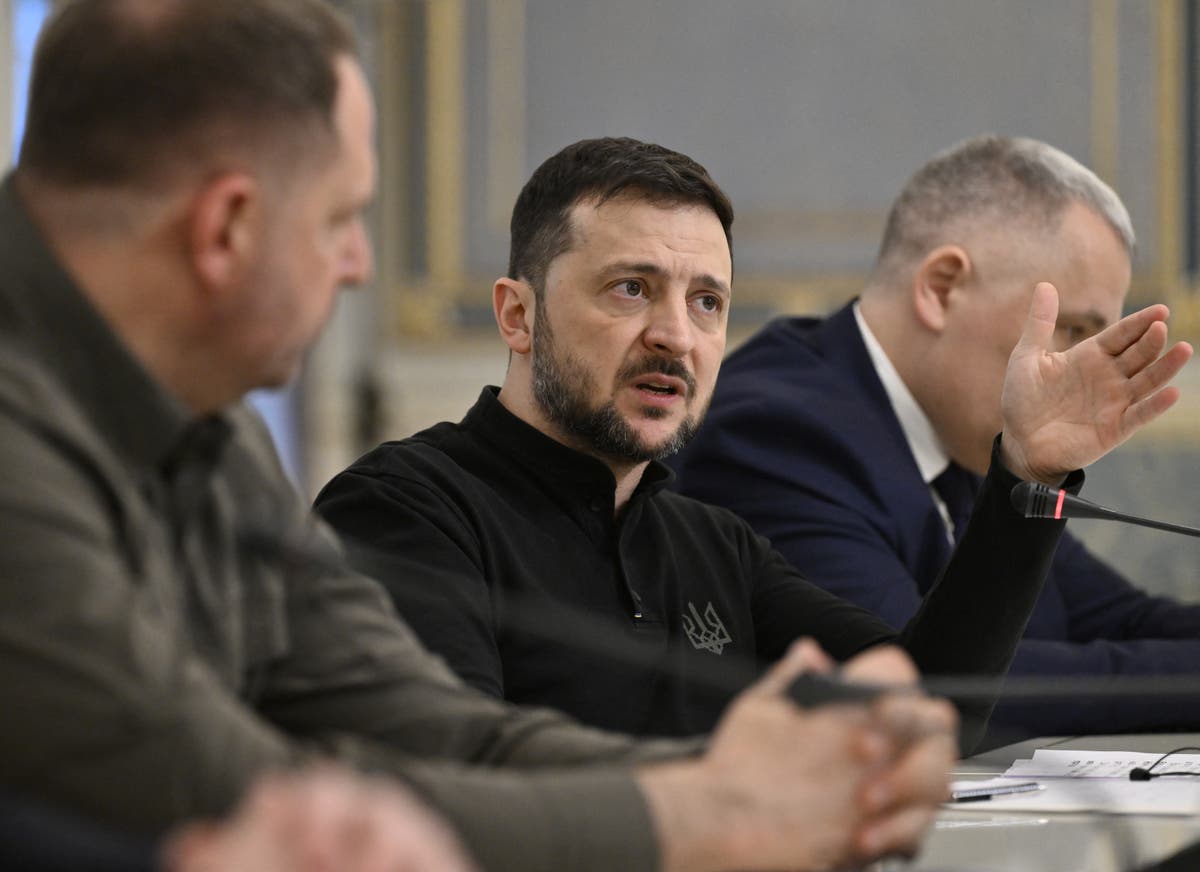


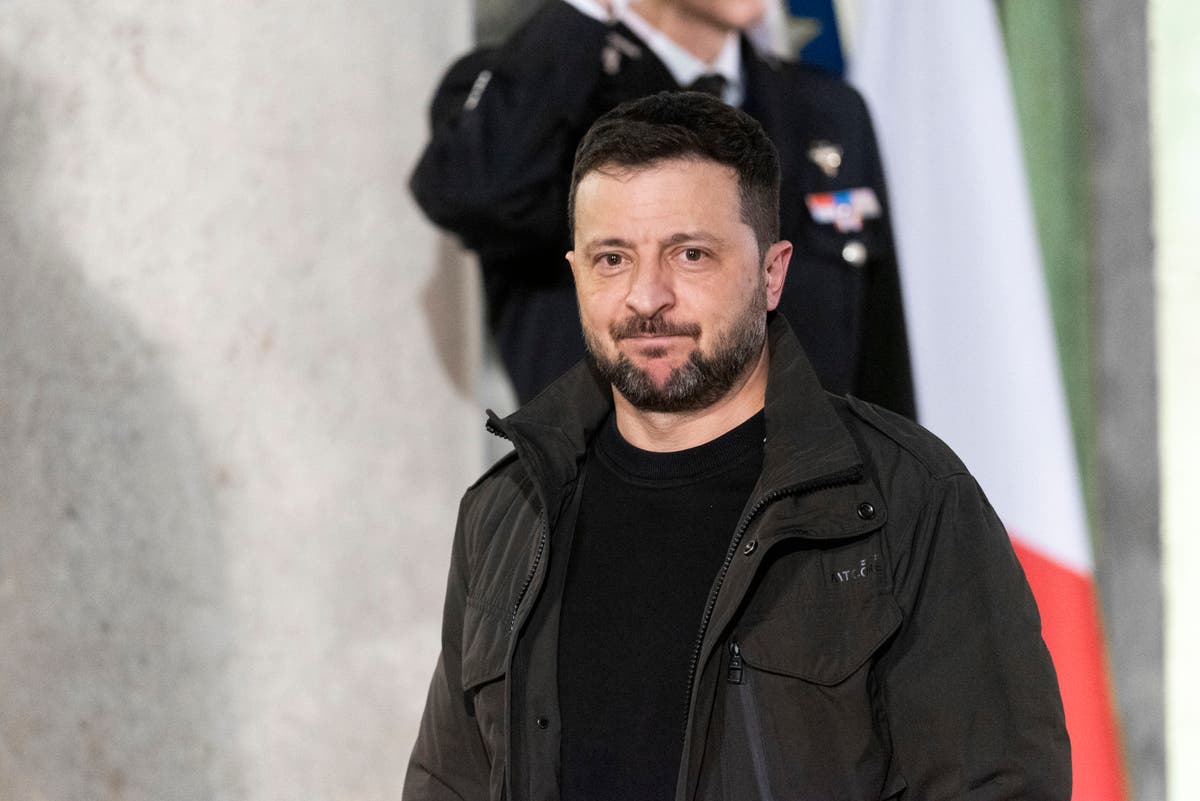






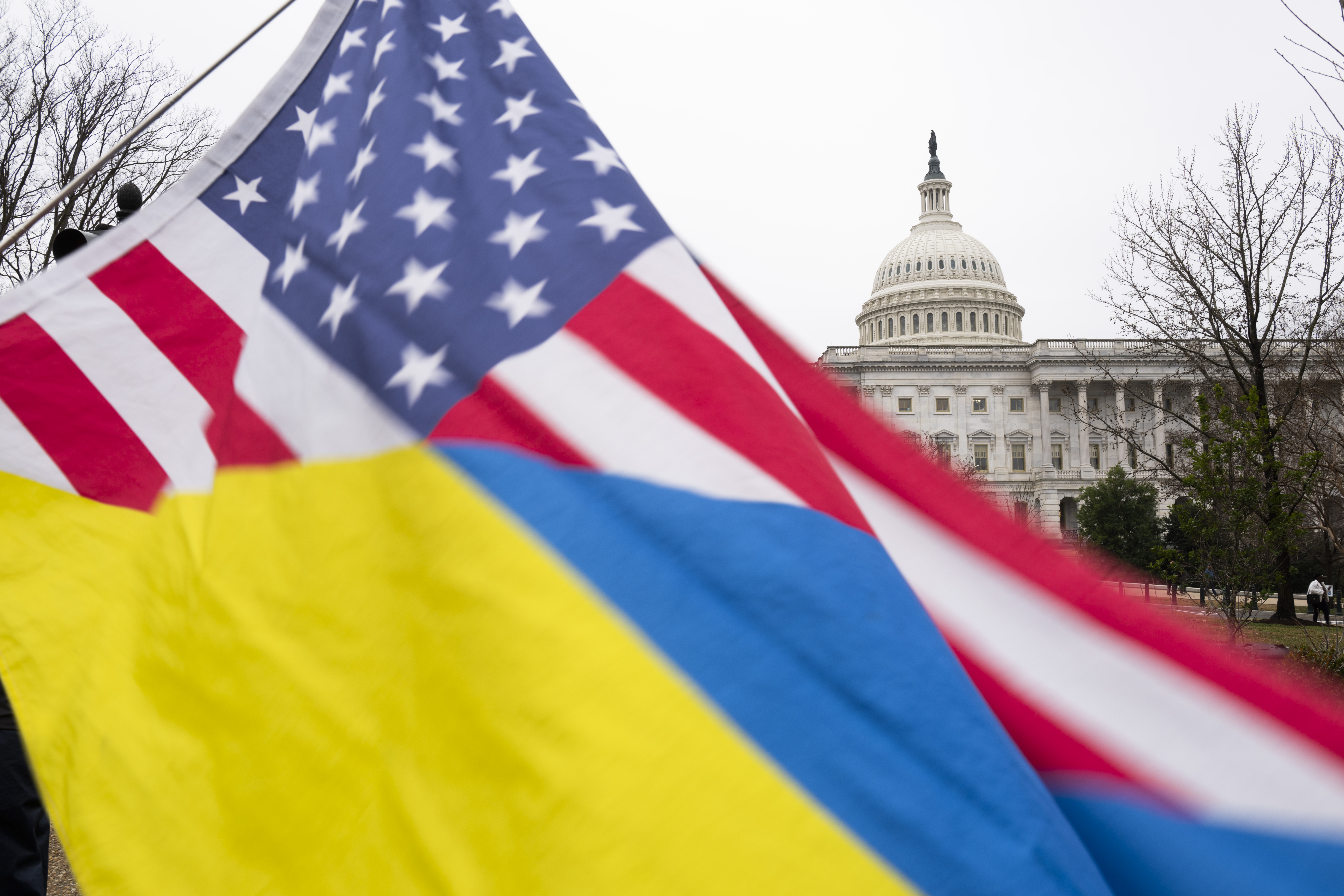




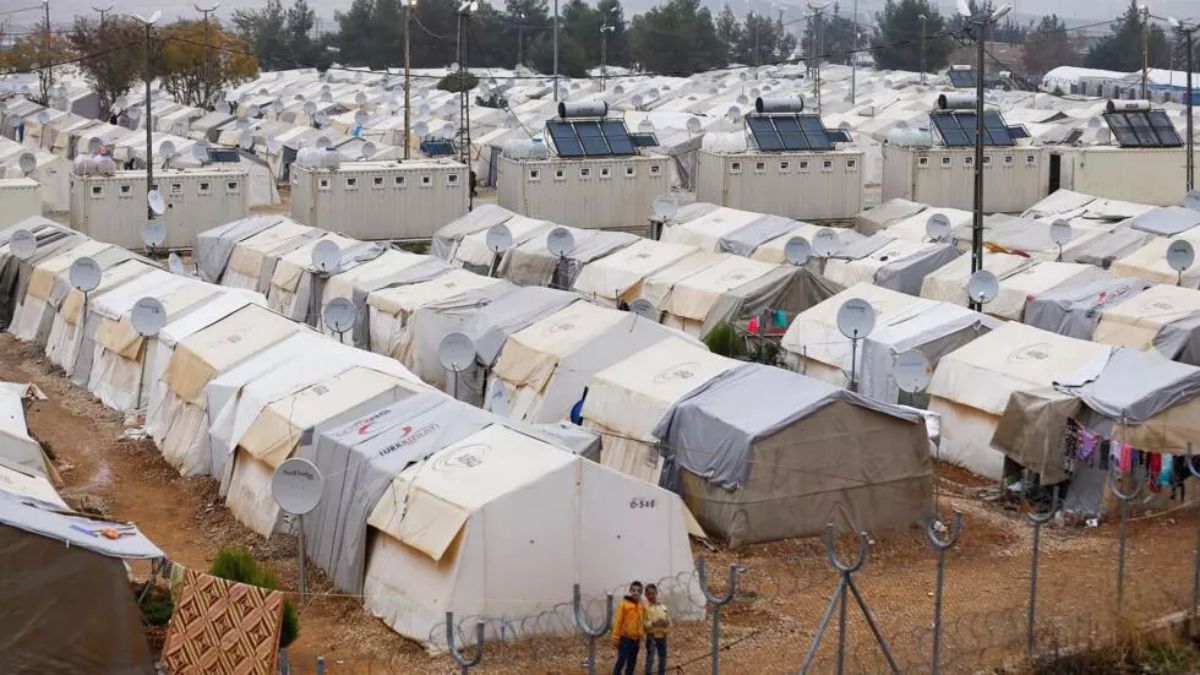)
